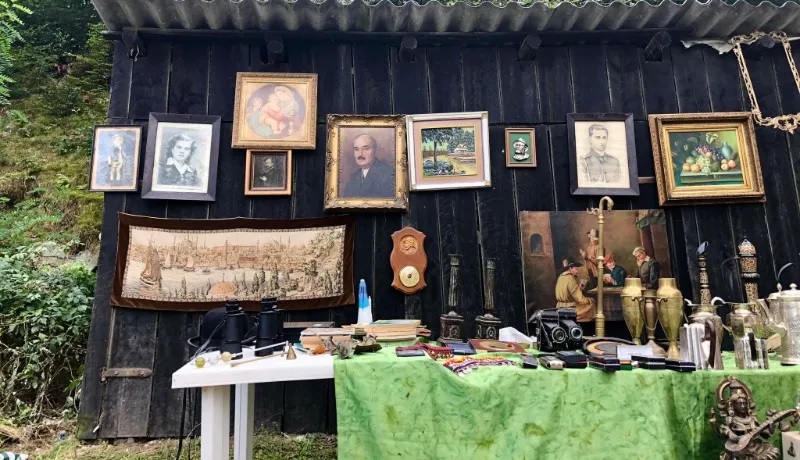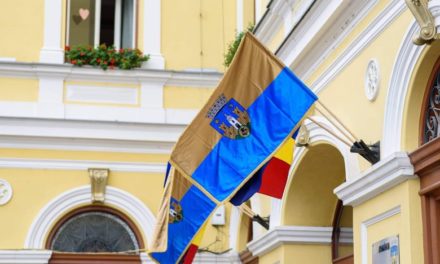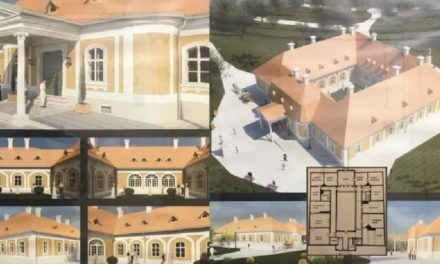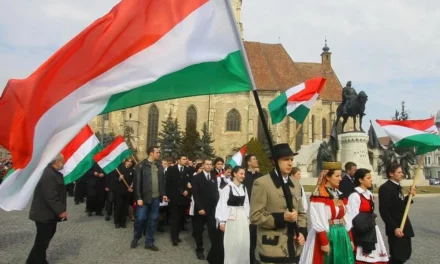This is how I became a gypsy on Feketetón, or the fair story of the Mongolian leather jacket and the Gábor hat. Written by Edgár László Varga.
The Black Lake Fair is the real thing if you go by train. Of course, you have to be able to withstand the rigors, and you also need plenty of Balkan sense of humor. When I tell the cashier at the train station in the morning that I'm asking for a ticket to Negreni, she buries her face in her hands and then resignedly points to a handwritten, improvised information sheet taped to the corner of the ghișeu: the 8:48 TFG train heading towards Feketetó is not the at the ticket office, but on the train. Who knows how many times he has said this in the past few days, it's already Saturday, and the Black Lake Fair started on Wednesday this year. I'm sorry, but I can see in his face that I'd rather die.
I haven't been on a train at Feketetó for a long time, the last time it was crowded only on the way back. But now there is such a crowd next to the TFG assembly consisting of only two (!) wagons,
that it would be possible to free Táncsic.
When you get closer, it becomes clear that it also has the atmosphere of a siege: the conductor is standing there, unfortunately stuck between the train and the angry people, and he desperately explains that this is it, all the tickets have already been bought in advance, there are no more seats, he can't give up any more man. But the crowd does not expand, they grumble angrily that this is how the system is, and this is how their mothers are, that they are not able to get more trains, more wagons to work, when they know very well that it will be needed. They also argue with the unfortunate conductor, until finally a woman begins to argue that people must be allowed onto such-and-such a train, and the conductor steps aside obediently (he even says so much that the person standing will pay the same price), and the crowd, like a river that has lost its dam, surges onto the train.
Well, this also starts well, that's how the experience is complete with us.
A man on the train explains that it was the same fifty years ago, only then at least those who didn't get a seat didn't have to change tickets.
But the country has developed since then: now everyone pays, and everyone pays the same amount.
Then the initial gloomy tension slowly dissipates, everyone is quickly overcome by the excitement of the fair, a group of young people already starts talking about how good the small fair will be, and who will return home from Feketetó with what kind of souvenir this year. You quickly get used to the elbow of the other person by your side, in fact, that fleeting hour and a half flies by quickly, we are already getting off the back.
A few more minutes, and we are in the whirlwind of the fair
Which is both familiar and unknown, as one senses every year that this Black Lake is no longer the Black Lake. The "foreign element" is getting bigger and bigger.
This year there is also a stall with shaoram and even smoothies
(a smoothie is 20 lei, like a treasured "smartasfuck" in Cluj), children can also enjoy gigantic bouncy castles, merry-go-rounds and dodgems. The gypsy women who used to bake mich in the previously covered stalls and tents were finally displaced by Moldovan and his colleagues, who pushed with show kitchens at the fair, and although you can still find good mich if you look hard enough, the experience is no longer the same.
Neither are the prices - one of the sellers complains that the "peasants" do not understand why everything is so expensive, even if they knew how high the rents and transport costs are... Fortunately, the Romanian stomach "adapts":
many people would rather drink two beers (also ten lei each) than eat something.
But Feketetó, despite the above, will always be Feketetó. One could wander for days among the many boxes - some of them are really hard to find what they are looking for on the tarpaulin, because they are also rusty, broken, and useless - among which, however, you can find a treasure at any time. Well, not very often, of course, and it's better if you don't get too spectacularly carried away, because the price of the treasure in question can very easily skyrocket if the seller buys something from you.
But there is everything here: a two-piece pool cue with a leather case, a bayonet for a Kalashnikov, a bunch of communist awards, Korans, Buddhas, Jesuses - lots of Jesuses - but there are also many Virgin Marys and St. Peters.
Yes: Heaven's Gate is also for sale
There's a "thousand-year-old" leather jacket from Mongolia (Mongolian leather, damnit!), I'll buy it in the end, because it's only 20 lei, like a smoothie, and vintage is fashionable anyway - although you still have to spend money on it to be able to wear it.
Meanwhile, the well-known kofaslang, tréjlázecseeee, megaoffertööö, and their companions are loud from here and there, at the stands, in front of the tarpaulins, bloody bargaining is going on between the older generations of sellers and buyers - who still know how to bargain. It is a common sight that the bucket calls after an offended customer who storms off: come back, how much will you pay for it?; It's there, take it for thirty, but don't let me see it again.
At one point, I try on a Gábor hat as a joke, very comfortable, braided rabbit hair, nice work. I'll give it to you for nine hundred, because it's good, there's an old gypsy woman sitting next to me. He appreciates it, I say, even though I'm a gypsy too. The old woman looks at this suspiciously for a minute, nope, she finally says, I don't think so, but the hat just looks like a little boy.
When I take it off, suddenly a younger gypsy woman appears, I think the old woman's daughter, where did that handsome gypsy man go, put it back, it was tailored for you, she says. I go for a walk, I think about it, I say, then of course I don't look at them anymore.
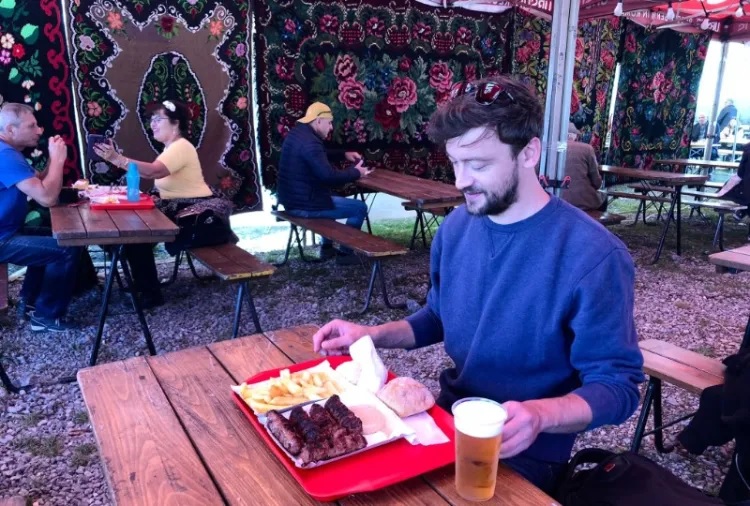
Photo: Főtér/Edgár László Varga
In another place, I bargain with another gypsy woman for a leather jacket, even though I don't really need it. We start from Öccáz láj there as well, then soon it will be two hundred, then 80, and finally the aduás comes:
then take it, let Chad give you thirty lei.
I don't buy that either, I don't like her shoulders.
Then in the afternoon you get tired, it becomes more and more difficult to notice the treasures in the chaos, one more relaxing beer (you've already had it earlier), and then you can trudge back to your bed, there's a train back at five o'clock.
The crowd is the same as it was here in the morning, but the guide (the same one) no longer protests, willingly issues standing tickets for the many tired, slightly sloppy-kitchen-smelling market people - at full price. A group of real Hungarian folk dancers will also land in Méra, because this year a dance house was organized in Méra in honor of the fair, and the rest of us are tiredly trudging on towards Cluj.
The train is crowded, but it doesn't really bother anyone anymore, everyone is replaying their experiences at the fair in their heads, sneaking glances at the fair boy. That was it, another Black Lake fair has passed, and with it another year. Who knows, maybe next year there will be camels and giraffes, like in a real circus.

